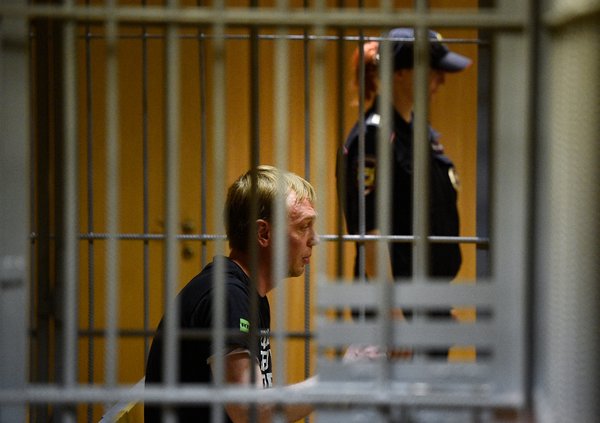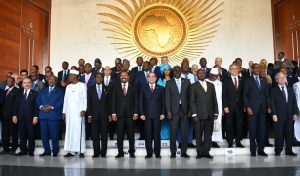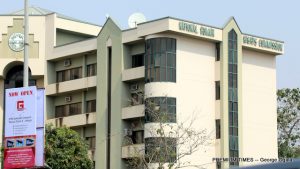In a rare reversal, Russia has dropped charges against a journalist after protests

Now the question for some Russians is whether to celebrate, or keep the protest momentum going.Golunov, a reporter for the independent news website Meduza, was freed from house arrest after Russia’s Minister of Internal Affairs, Vladimir Kolokoltsev, announced the case was dropped because of a lack of evidence. “According to the results of biological, forensic and fingerprint examinations and DNA testing, a decision was made to terminate the criminal prosecution of citizen Ivan Golunov due to the lack of evidence of his participation in the crime,” Kolokoltsev said. Golunov was detained Thursday in Moscow on drugs charges his supporters said were fabricated.The police officers who arrested Golunov were suspended from active duty, and Kolokoltsev said he would request the dismissal of two top interior ministry officials — chief of internal affairs at the western district of Russia, Andrei Puchkov, and head of the Moscow directorate for drug control at the Ministry of Internal Affairs, Yuri Devyatkin.That in itself was an unusual turn of events: It is rare in Russia to see the authorities reverse position, particularly in the face of street protests. Last year, for instance, the Russian government rolled out deeply unpopular pension reforms, despite a wave of street demonstrations.Golunov, best known for reports on official corruption, drew support from across Russia’s political spectrum after his arrest on a drugs charge. Russia’s embattled political opposition rallied along with his colleagues. But it was striking to see statements of solidarity coming even from Kremlin loyalists and state media personalities.Russian Foreign Ministry spokesperson Maria Zakharova expressed joy in response to the news: “The best day. In tears. Happiness.””The last time I was this happy for my country, I was strolling down Nikolskaya Street [in Moscow] during the World Cup,” said Margarita Simonyan, the editor-in-chief of Kremlin-funded network RT. Even Liza Peskova, an Instagram celebrity who is the daughter of Kremlin spokesperson Dmitry Peskov, posted a photo of herself holding one of the newspaper front pages that ran in solidarity with Golunov, headlined, “I/We are Ivan Golunov.”Golunov meant different things for different people. For some, his case put the spotlight on police corruption, and his release was a tacit admission of a widespread police practice of planting drugs on criminal suspects.Then there was the issue of press freedom. Golunov, an investigator of municipal corruption in Moscow, plies a dangerous trade: Many Russian journalists who probe the murky affairs of local officials face intimidation, harassment and even violence. And Golunov’s surprise release was cause for intense speculation about the Kremlin’s political calculations. Many noted that Russian President Vladimir Putin holds his annual televised call-in show next week, and the case threatened to spoil a carefully orchestrated event meant to showcase Putin as a wise and beneficent tsar solving the problems of his subjects.Dismissing the police who fabricated the case, some noted, allows Putin to contrast his own competence with the conduct of the lackluster and corrupt officials one often encounters in everyday life.Still, the news was cast by many as a victory for Russia’s civil society. In a statement released after the ministry’s announcement, Golunov’s colleagues said they were “glad that authorities have heard the society.””This is the result of an unprecedented international campaign of journalistic and civic solidarity,” Meduza journalists said in a statement. “Together we did an incredible thing: We stopped the prosecution of an innocent man.”Meduza called on Golunov’s supporters to opt out of a demonstration that was being planned for Wednesday in downtown Moscow, but had not received a permit.Some of the organizers said they would proceed. “I think that canceling the March on June 12 is the wrong decision,” said Ilya Azar, a journalist with Russia’s independent Novaya Gazeta, arguing that the authorities still needed to punish those who planted drugs on Golunov and fabricated the criminal case.Golunov, for his part, said he would not take part in the march. Meeting reporters after his release from house arrest, he promised to continue the investigative work he had been doing before he was detained.







